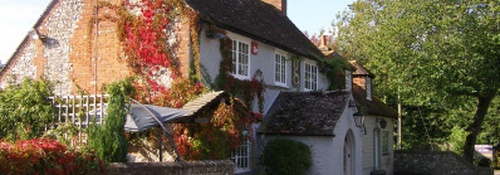Walks
Viewing events by Tim
Day Walk 30th March
March 30, 2016, 9:45 a.m.

Eartham and Stane Street walk, lunch at The George.
Morning Walk
March 9, 2016, 9:45 a.m.
Mary and Barbara's Morning walk will be in the Milland area
Day Walk 2nd March 2016
March 2, 2016, 9:45 a.m.
Denis has stepped in to do a walk between Hillbrow and Rogate, start point will be in the Village Hall car park, behind the White Horse. Jennifer's walk has moved to 16th March.
The Normans during the twelfth century established the churches, an abbey at Durford, and large estates for the Norman rulers. From medieval times Rogate was the first and largest of the valley communities & the two fine stone bridges at Durford and Habin date from that time. In the Tudor period Rogate became a centre for the iron industry with furnaces and noisy hammers forging iron goods for general purposes but also for the new Portsmouth Naval Dockyard. The furnaces were fired with charcoal, so the woodland was gradually cleared. The industry declined with the advent of coal-fired furnaces in the north of England. (Thanks to Rogatevillage.net)
Morning Walk
Feb. 24, 2016, 9:45 a.m.

Peter's morning walk from Petersfield via Hangars Way to Steep and Bedales School
On 3 May Samuel Pepys wrote 'Took coach to Petersfield. Here my wife and I lay in the room the Queen lately lay at her going to France' (probably wasn't The Premier Inn next to MacDonalds..)
Day Walk
Feb. 17, 2016, 9:45 a.m.
Jeff's walk will be in Alice Holt Forest, near Farnham.
Seven miles no stiles, nettles and little mud!
Alice Holt Forest, Rowledge and Holt Pound
Rowledge Village website
According to "The Way We Were - a Social History of the Village of Rowledge"by Flora Westlake, the village was once called "Rowditch", renowned for fights between local youths across the ditch that formed the Surrey /Hampshire border. In Victorian times, the name changed to "Roughditch" and had the reputation of a generally lawless place. The nearby Vicar of Wrecclesham, in an effort to bring more "supervision" to the area convinced the Bishop of Winchester, who's diocese covered the whole of the area, to establish an ecclesiastical parish. The Government agreed to help and donated two acres of land from the Alice Holt Forest for a church, churchyard and vicarage.
Shipwrights Way is a new long distance route which links villages and towns in east Hampshire through some beautiful countryside. The name reflects the use of oak grown at Alice Holt Forest for Tudor shipbuilding, linking this site with Portsmouth Historic Dockyard, home of the Mary Rose and HMS Victory.
Archive
2020
2019
- December (2)
- November (4)
- October (5)
- September (4)
- August (4)
- July (5)
- June (4)
- May (5)
- April (4)
- March (4)
- February (4)
- January (5)
2018
- December (2)
- November (4)
- October (5)
- September (4)
- August (5)
- July (4)
- June (4)
- May (5)
- April (4)
- March (4)
- February (3)
- January (5)
2017
- December (2)
- November (5)
- October (4)
- September (4)
- August (5)
- July (3)
- June (4)
- May (5)
- April (4)
- March (5)
- February (4)
- January (4)
2016
- December (2)
- November (5)
- October (4)
- September (4)
- August (5)
- July (4)
- June (5)
- May (4)
- April (5)
- March (3)
- February (4)
- January (2)
Tags
- rambling (1)
Authors
- Tim (204)
- Philip Hoy (2)